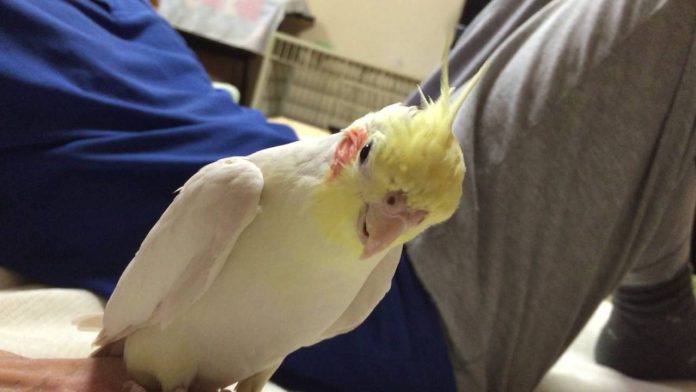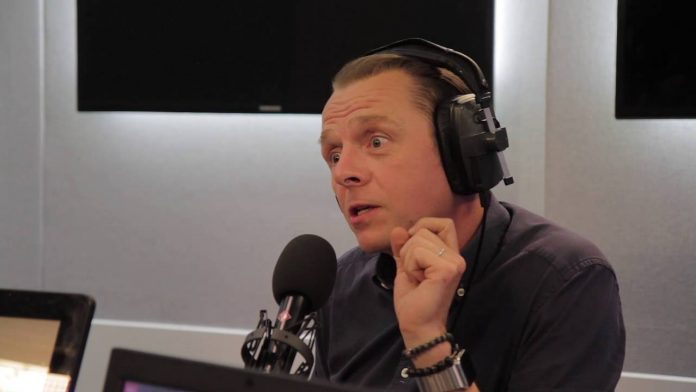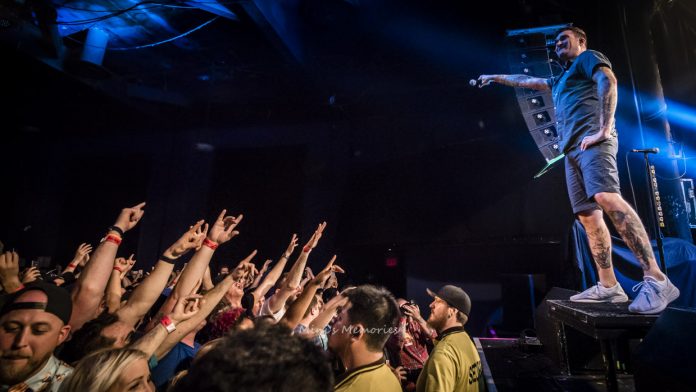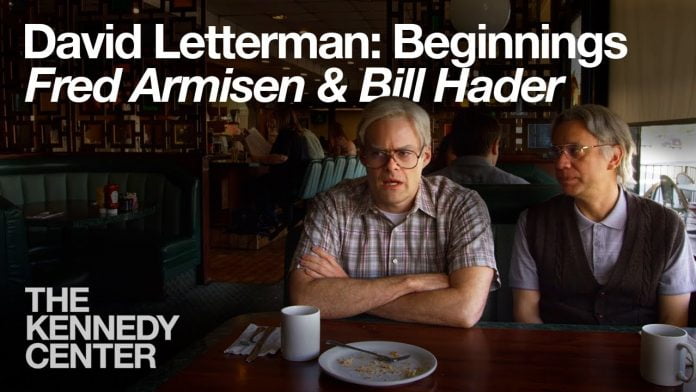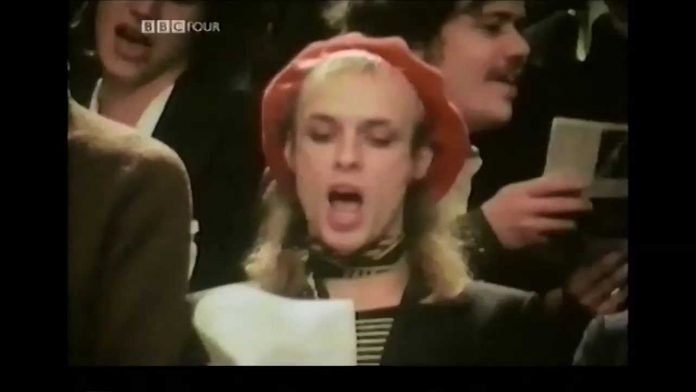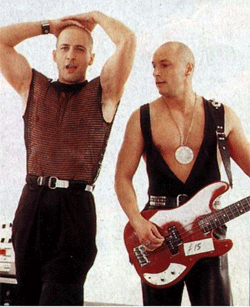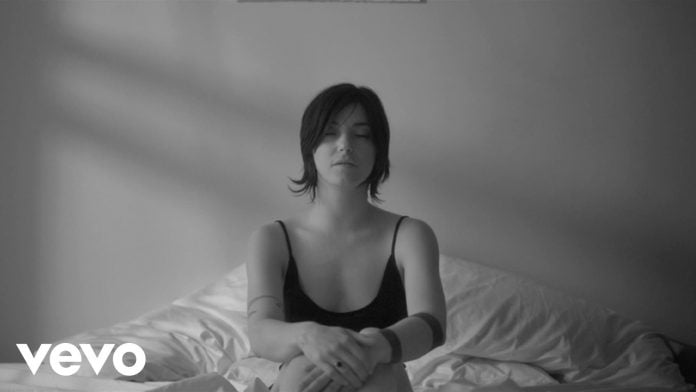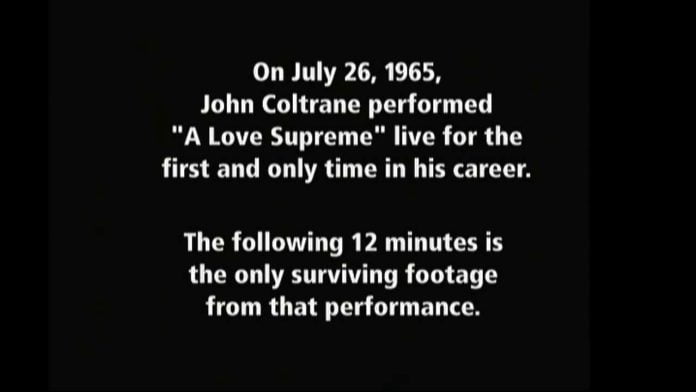A very melodic cockatiel named MAY-cyan whistled out a great medley of two iconic Queen songs – “Another One Bites the Dust” and “Radio Gaga” while sitting upon a Freddie Mercury doll. I don’t know how the new Freddie movie can include this, but they should.
Simon Pegg does four Beatles impressions in 12 seconds
Magic Green room asked Simon Pegg about his party trick, and this happened…
Haircut 100’s Nick Heyward On Releasing His First Album In 18 Years
Singer-songwriter and nature spirit Nick Heyward has been crafting pop gems for over 30 years frontman of the early 1980s band Haircut 100 and for his solo career.. The latest, Woodland Echoes, is out now on Gladsome Hawk.
STEREOGUM: What were you up to for nearly two decades that led to you making a new record?
NICK HEYWARD: Well, obviously it’s a long time… I’ll try and make it brief. The end of 1998, 1999, you’ve got to remember what was going on in music, that was a time when Nick Heyward the artist wouldn’t even get signed, for most of the 2000s. I can’t remember what was going on musically, but it wasn’t good for me. It wasn’t good for a lot of Creation artists, actually, at that time. [Creation founder] Alan McGee said guitar music was over. It seemed that way and it didn’t feel good, so I went to America.
I was living in Los Angeles, just going and playing at Largo a lot. I got to know Jon Brion. I started playing there, and it was nice because that was the first time I ever saw any money! [Laughs.] I went to play this club and as I was walking out, they gave me a thousand dollars. And I was like, “What? Whoa, money! Real money. This is amazing.” It was shocking for me, really, I had always done gigs where it was the promotion of a record, so you never saw it at all. So I actually spent most of two decades never actually handling any money or seeing it, or knowing what it felt like to actually get paid. It was my first contact with the basics. Quite inspiring, actually. So I paid my rent, I was due $600, and I thought, “…I’d like to do that again!”
So I began playing with lots of lovely musicians, hanging out with lots of musicians, but not really releasing anything. Then the internet started to really evolve and Myspace came out. My son set me up with a page… and it was really simple. I liked it, just communicating the songs I was making from my cottage where I lived, which I turned into a home studio. I rented a piano and took it apart, stuck microphones in it, I didn’t know what I was doing, I’d never recorded in my life. So I was just sharing that stuff on Myspace, sharing my doodles. The only thing I could do was press “record” and “stop.” I had microphones and a laptop and an early version of Logic. I was just doodling unscripted versions of songs, unfinished. Then Myspace disappeared and I was writing and recording loads but still nobody saying “here’s a record deal.”
My son, who’d always shown that he was interested in music equipment, started to be a soundman in college. We would record in his bedroom or my spare room around 2007, I was playing live and using that money from live work to buy more equipment and pay for flights to go and see friends that had other spare rooms that we would record in, and studios along the way. Instead of buying a house, I just kind of paid for an album.
I still haven’t got a record deal, but the album is finished, and it was just a case of putting it out myself. PledgeMusic helped that, it was used for the promotion and for the tangible copy to be made. I made it up until mastering, so it would sound like as much of a record as possible. I was sitting the whole time there thinking, “Your favorite records weren’t made in spare rooms. Your favorite records even that you’ve done were made at Abbey Road studios, with [procucer] Geoff Emerick and stuff. But you haven’t got Geoff, you haven’t got Abbey Road studios, you haven’t got the Roundhouse [the venue where Haircut’s debut was recorded]. You just continue because one thing leads to another. This is just one record, if you make this, just get back into that creative process and keep doing it. Now it seems that there’s a way of sharing that music that I do.
Photo Gallery: New Found Glory with Bayside, The Movielife and WRK
All photos by Mini’s Memories. You can contact her at minismemories@hotmail.com
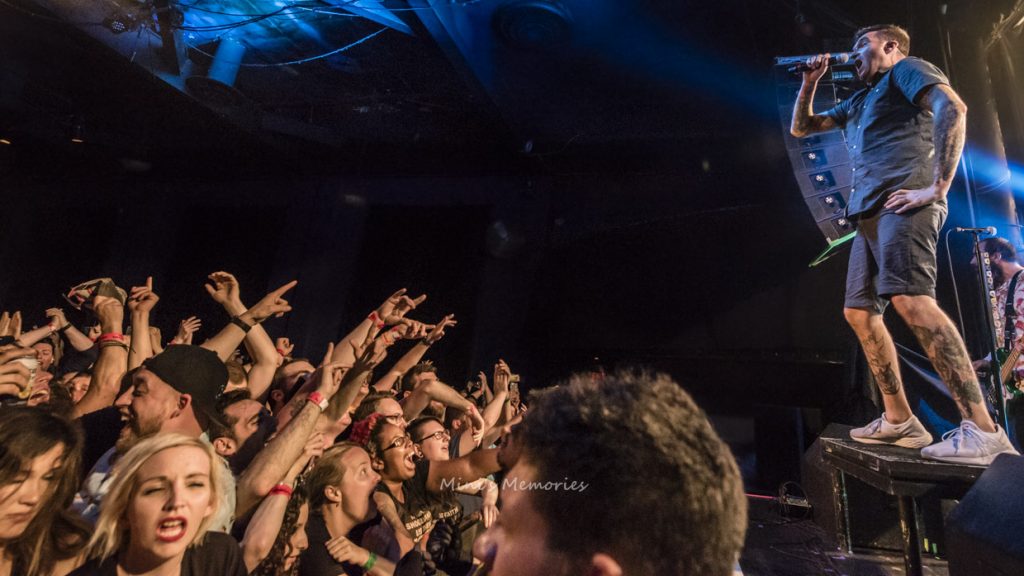
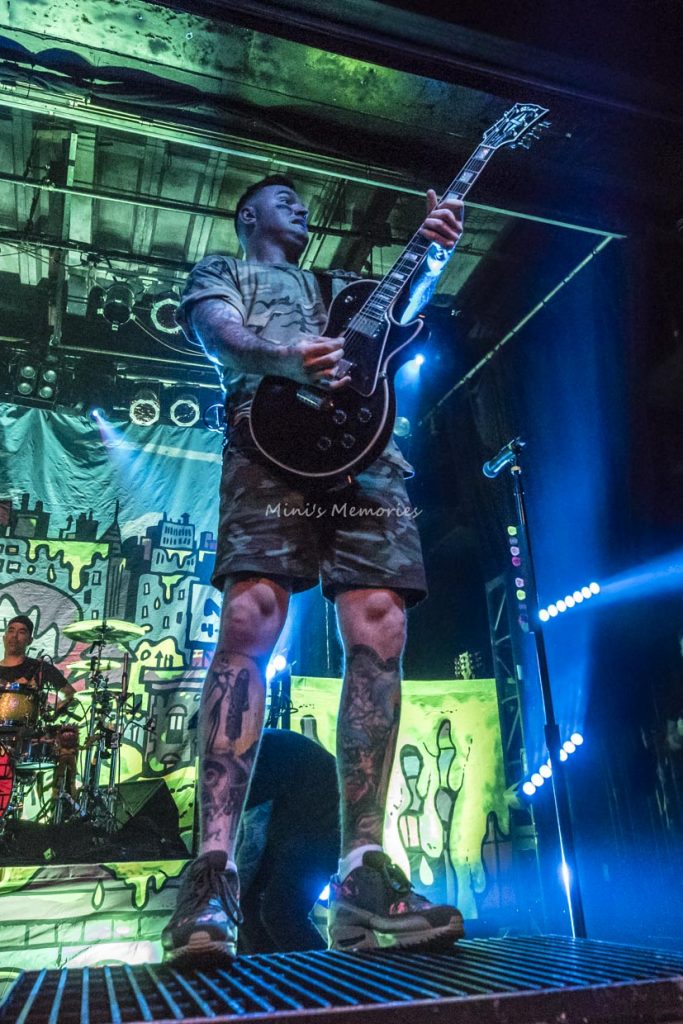
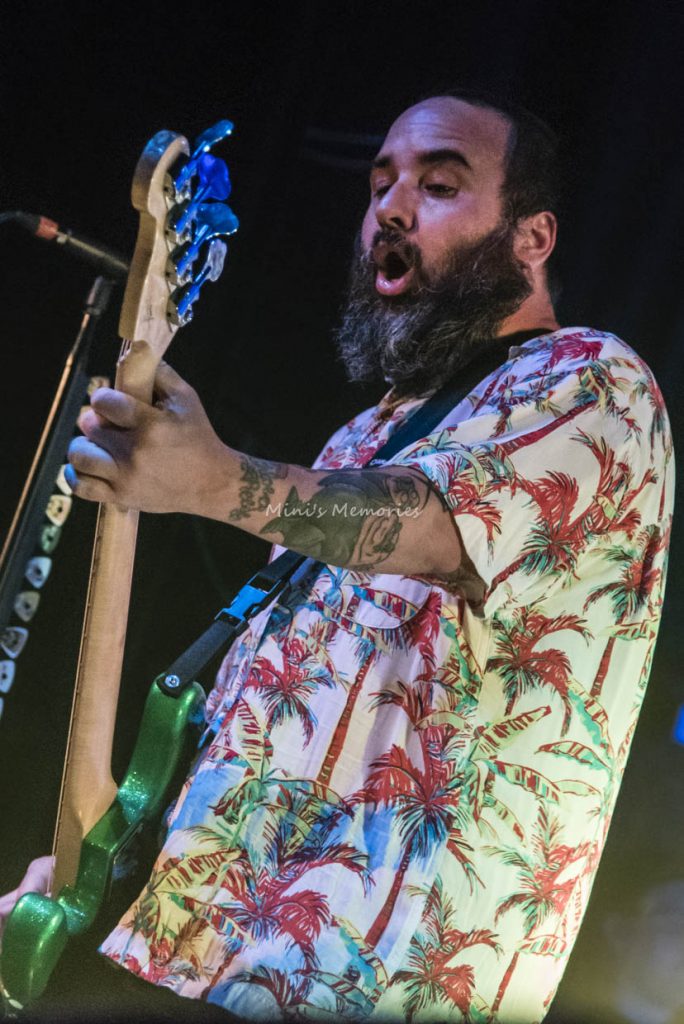
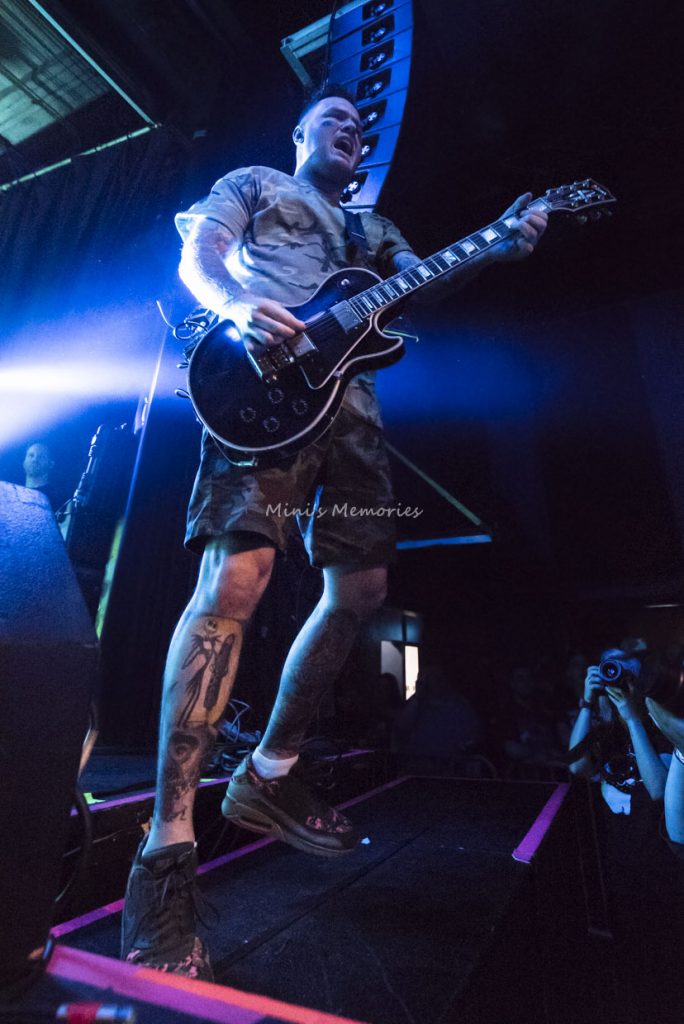
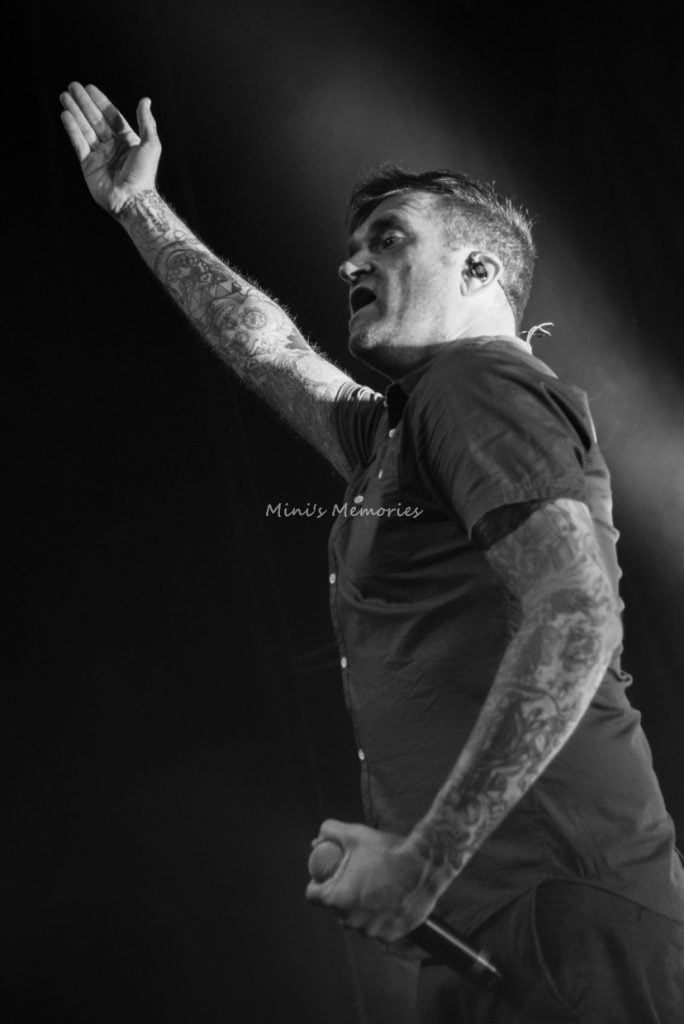
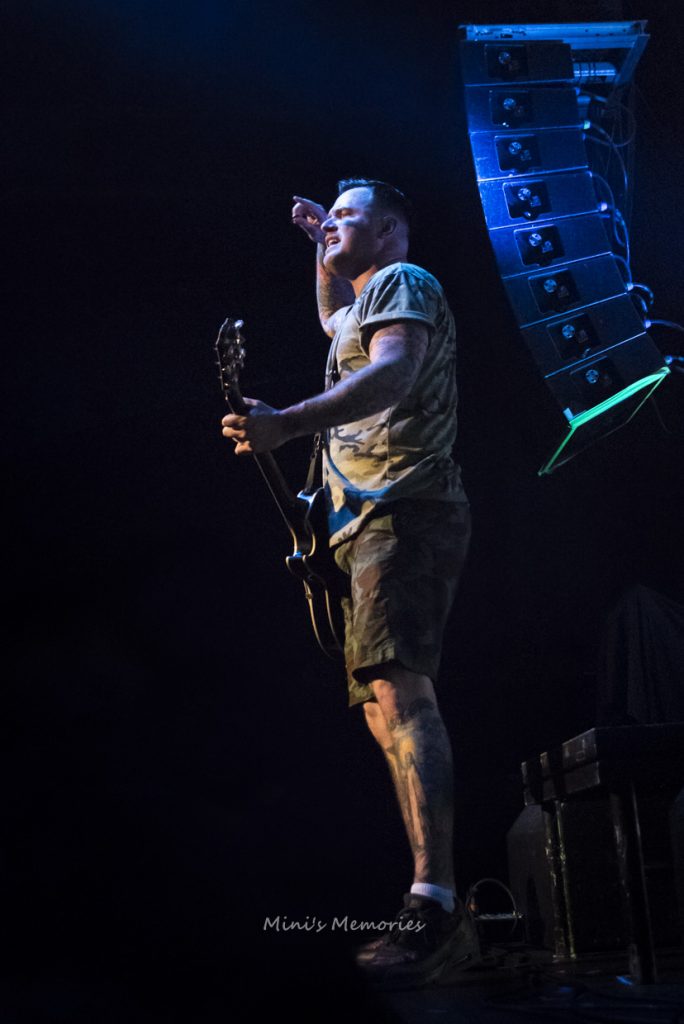
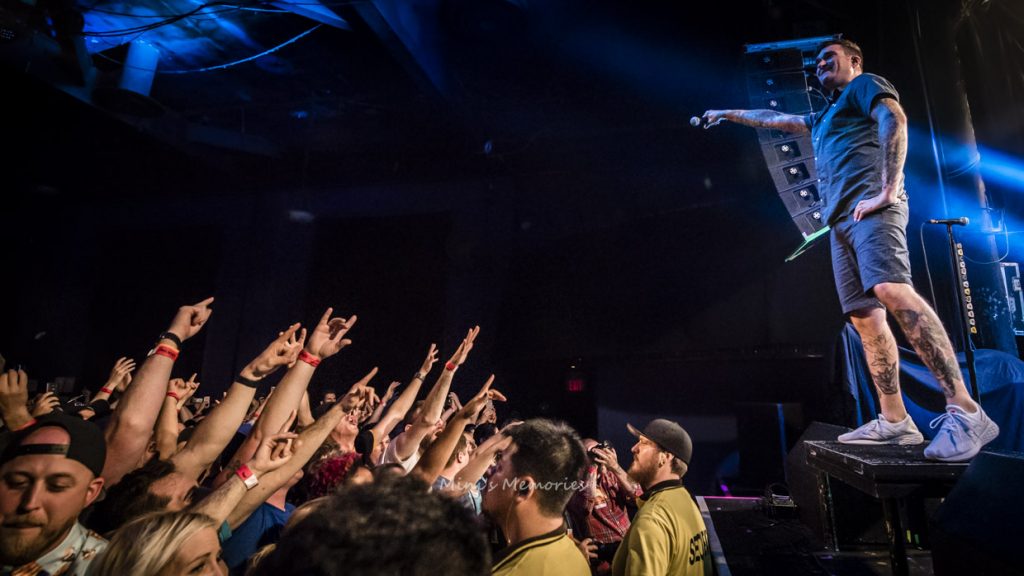
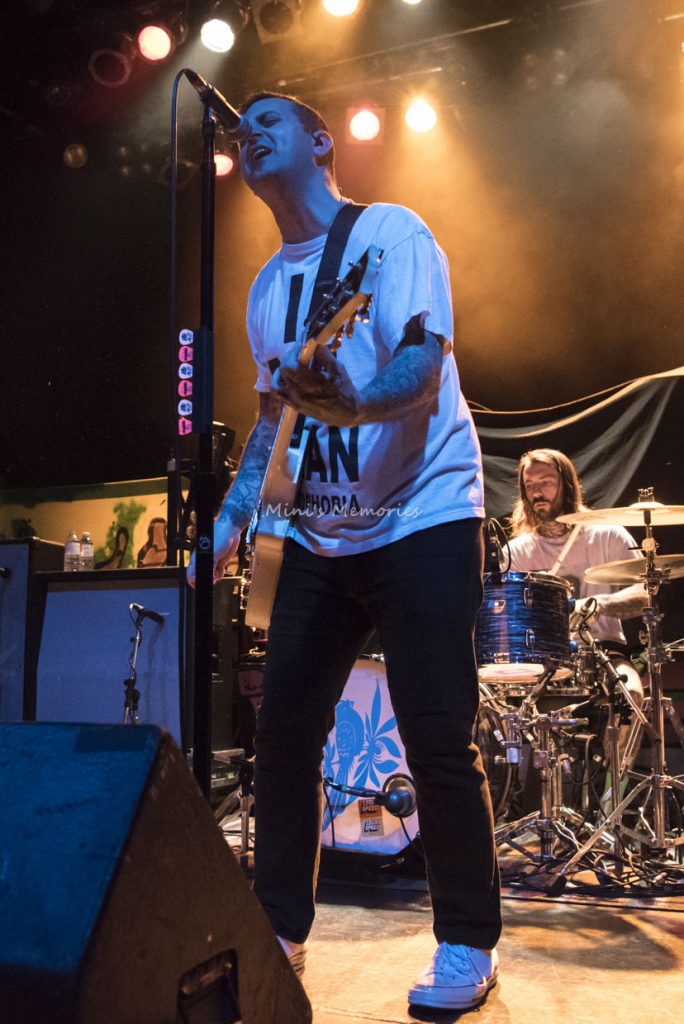
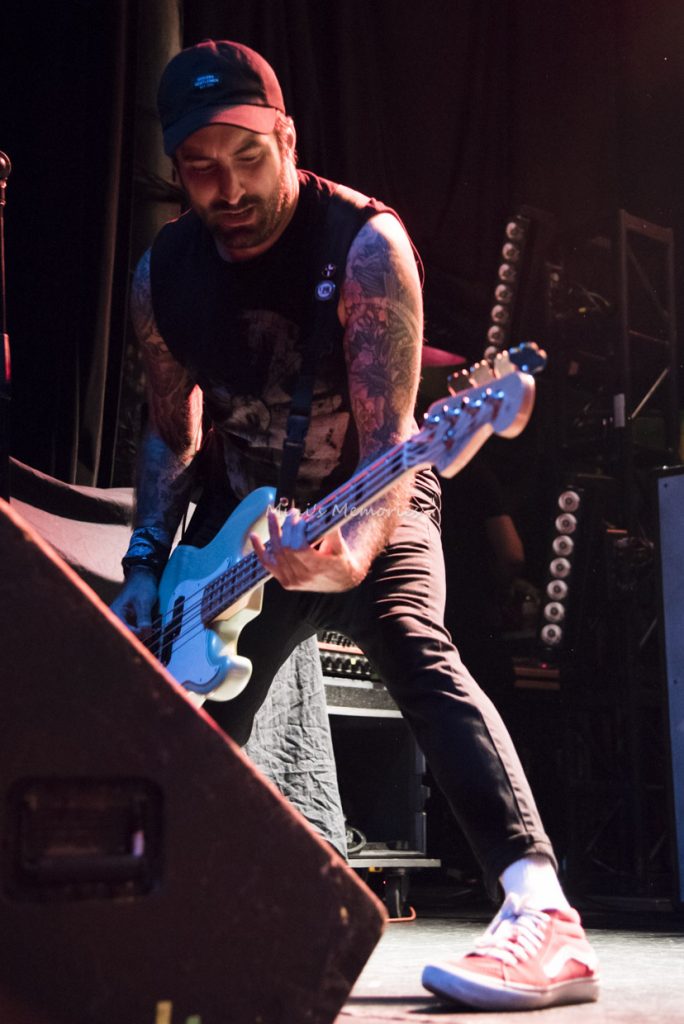
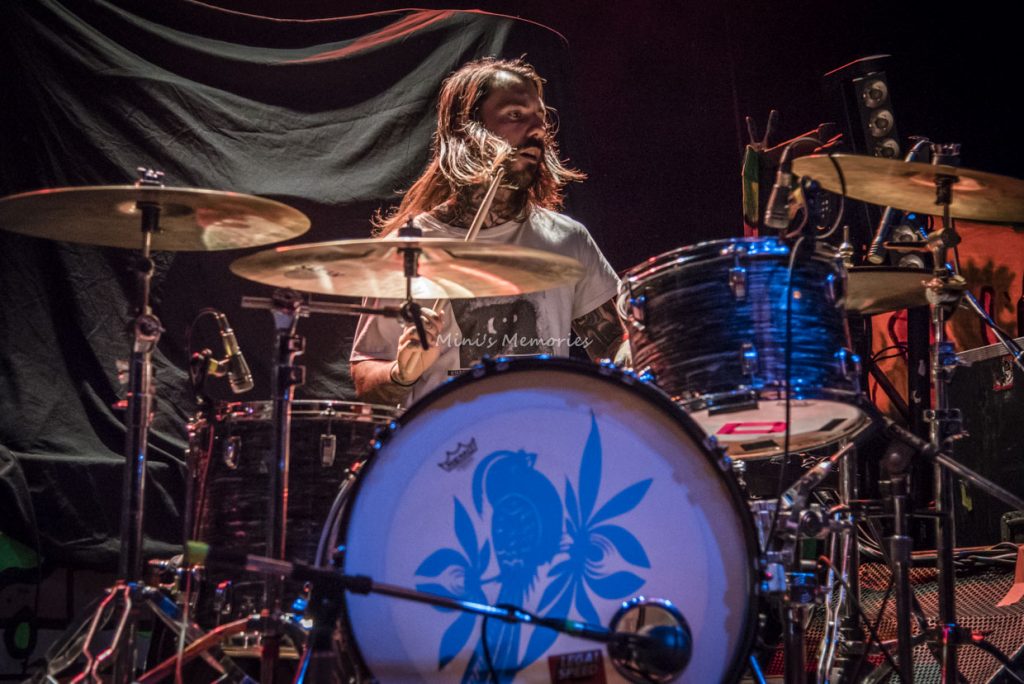
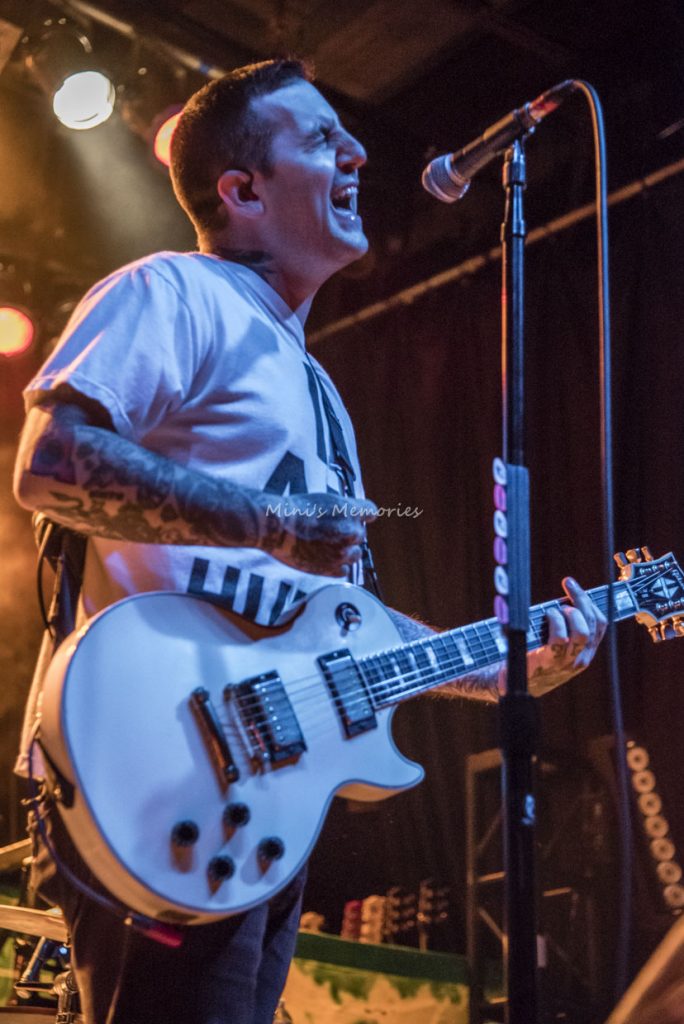
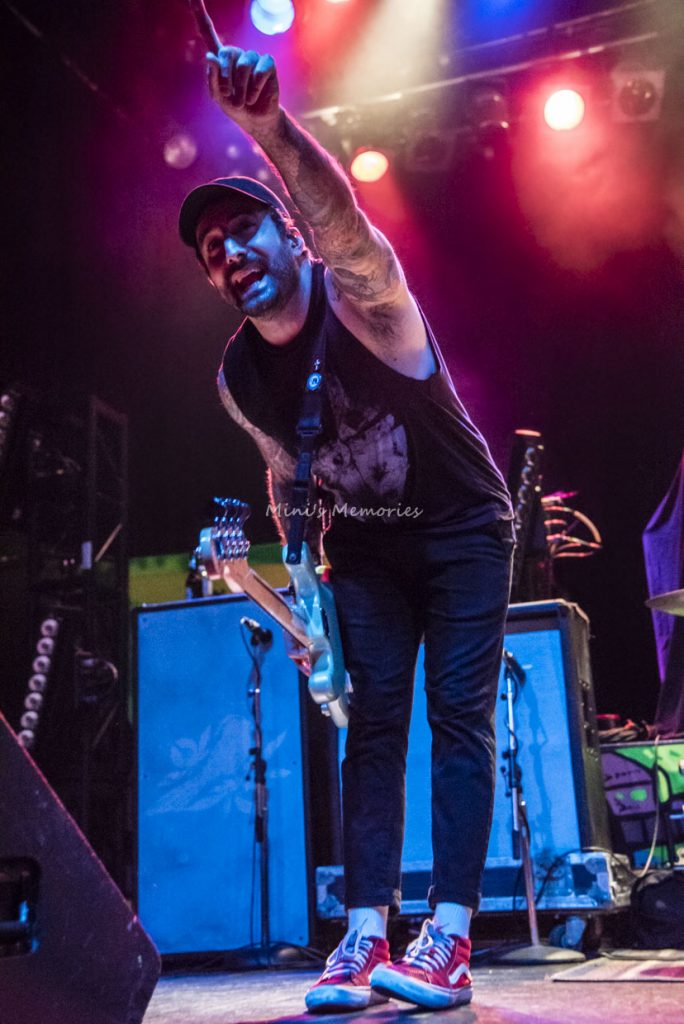
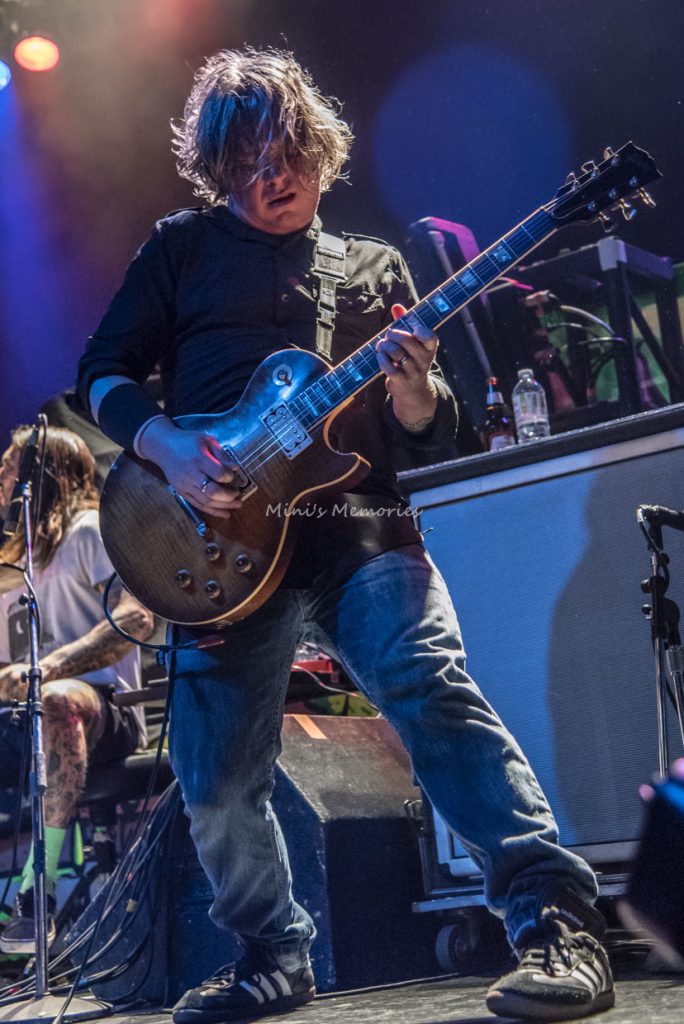
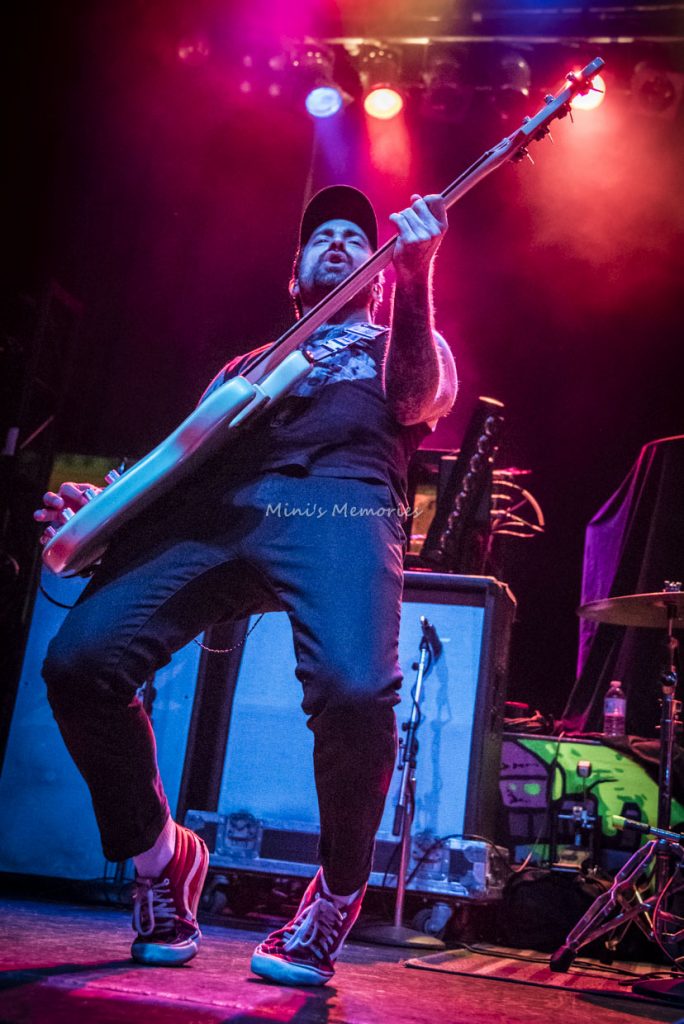
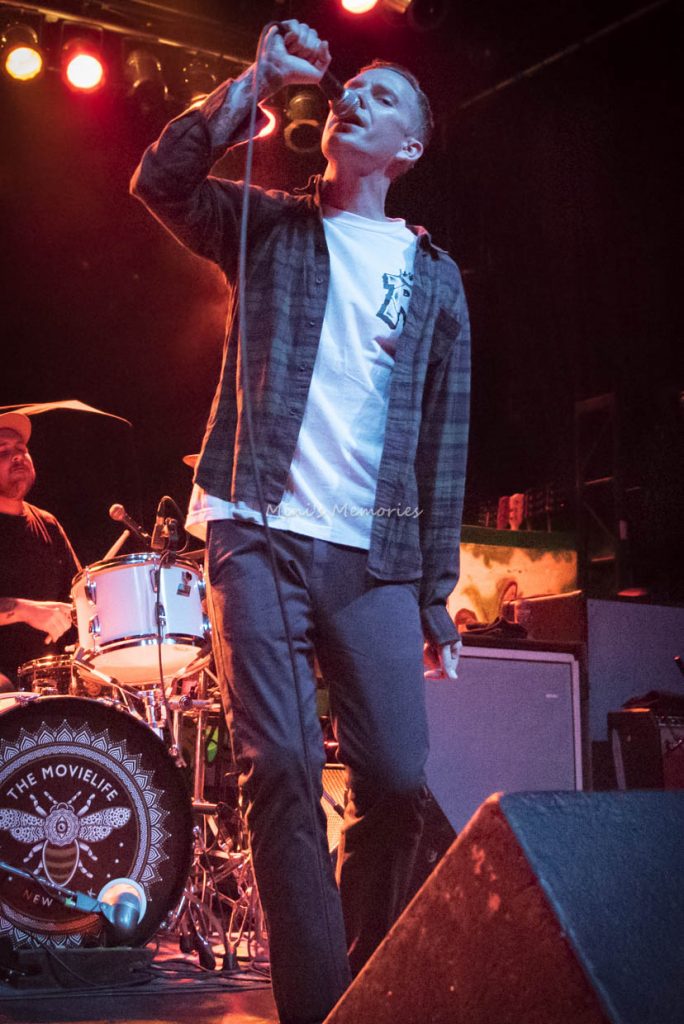

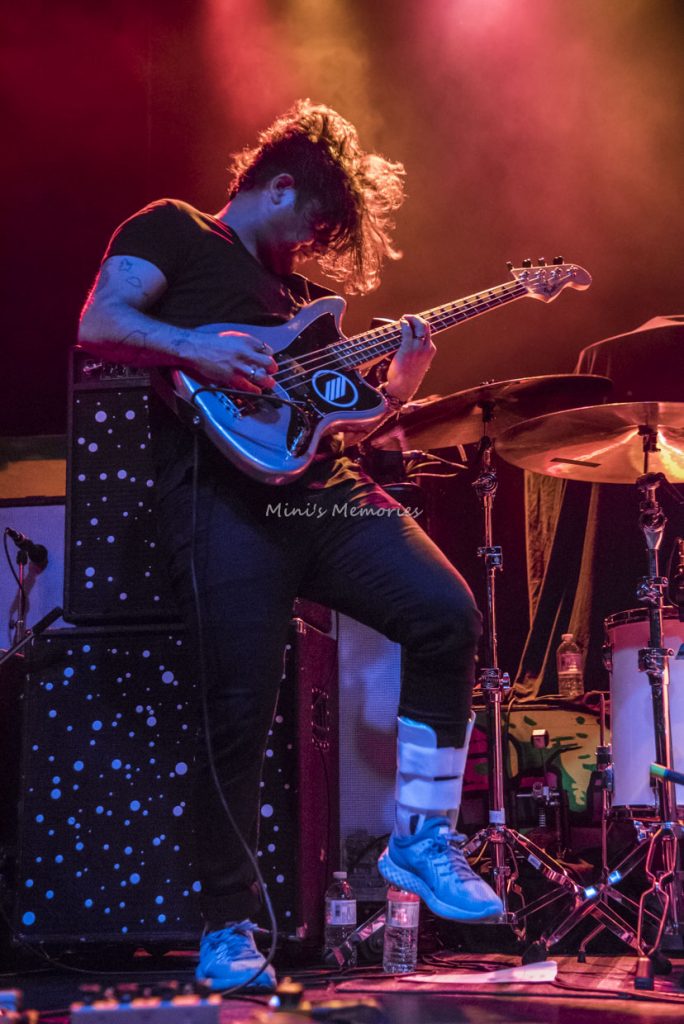
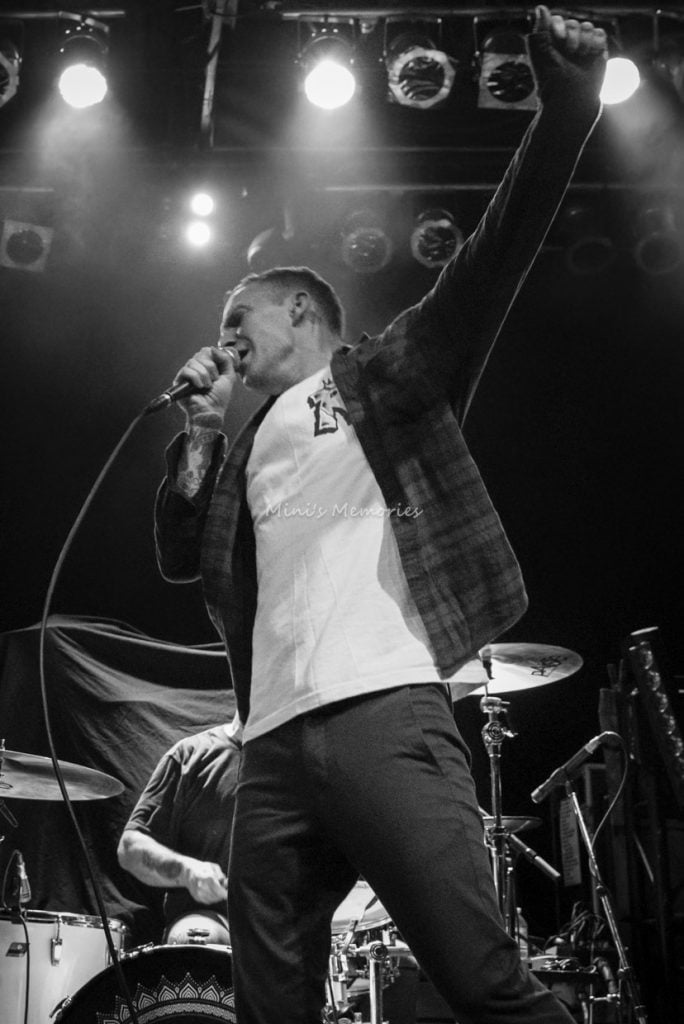

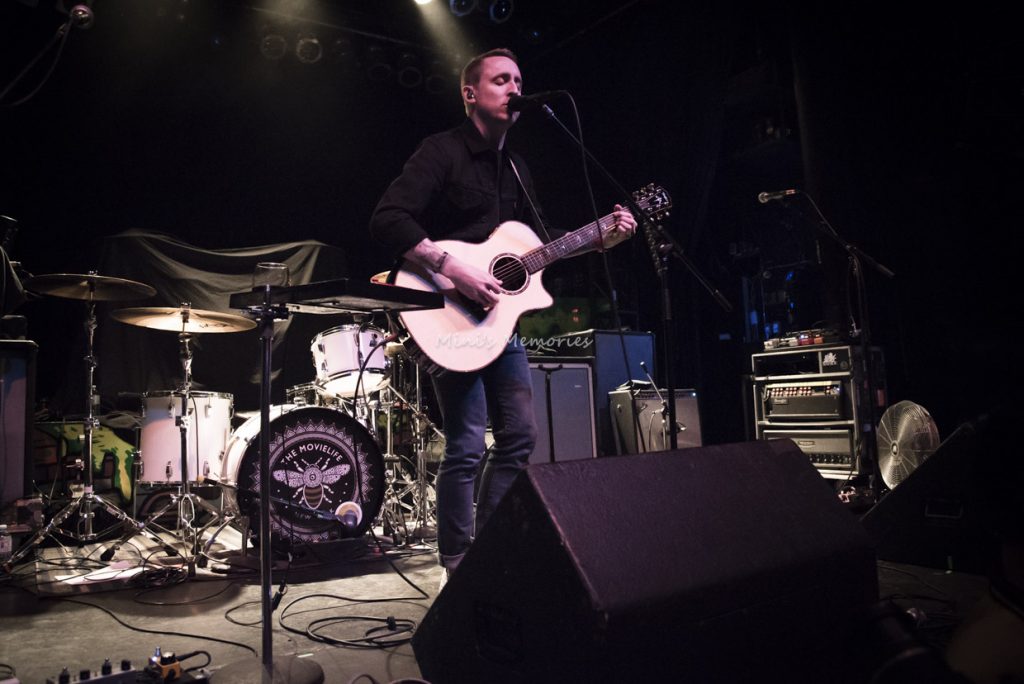
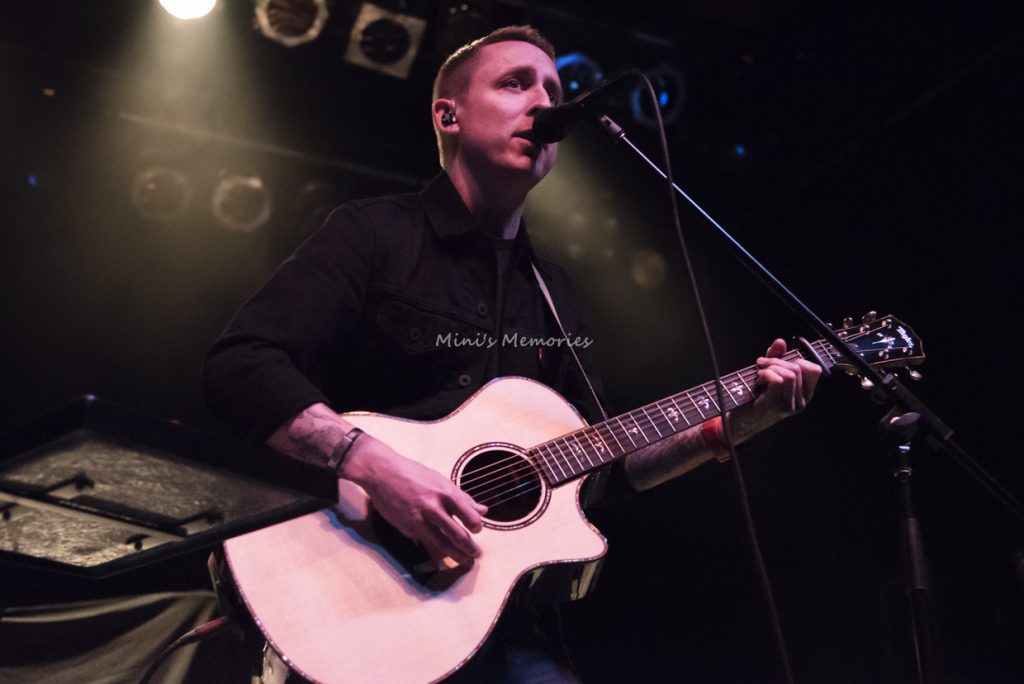
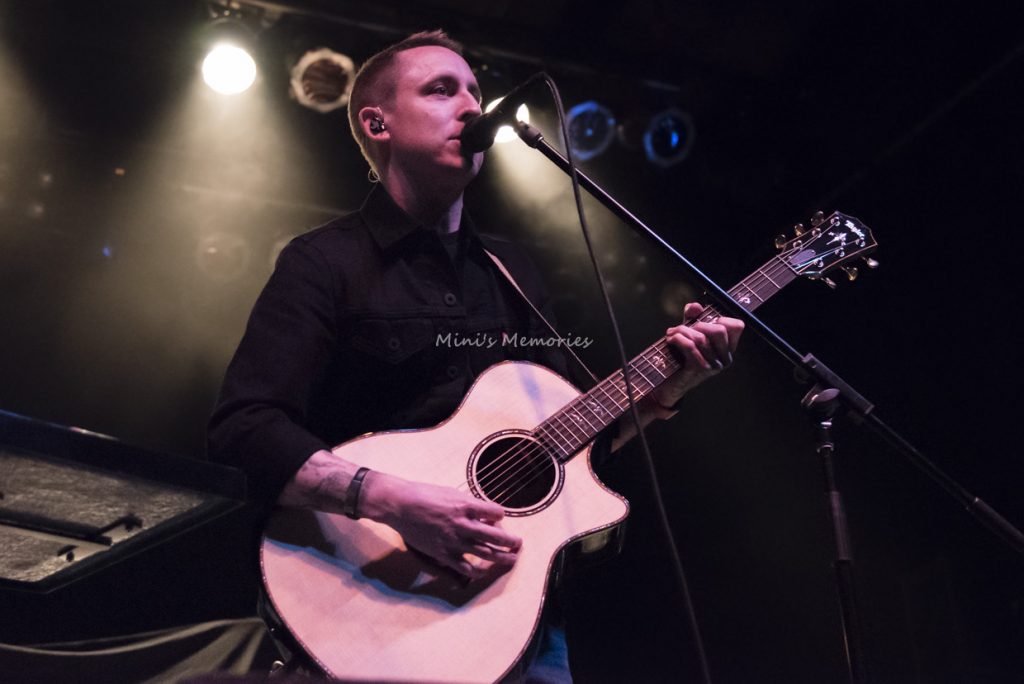
“David Letterman: Beginnings” with Fred Armisen and Bill Hader
Childhood friends Ralph Masterson (Fred Armisen) and Sam Cooper (Bill Hader) share very special tales of David Letterman’s beginnings in a tribute to the comedian for winning the Mark Twain Prize for American Humor.
That Time Brian Eno Played With Portsmouth Sinfonia, The Self-Proclaimed World’s Worst Orchestra
The Portsmouth Sinfonia was an orchestra founded by a group of students at the Portsmouth School of Art in England, in 1970. The Sinfonia was generally open to anyone and ended up drawing players that were either people without musical training or, if they were musicians, ones that chose to play an instrument that was entirely new to them. Among the founding members was one of their teachers, English composer Gavin Bryars. The orchestra started as a one-off, tongue-in-cheek performance art ensemble but became a cultural phenomenon over the following ten years, with concerts, record albums, a film and a hit single. They last performed publicly in 1979. Many modern composers and musicians found this his to be interesting and even profound; the comedic aspects of the music were merely a bonus, though it was used extensively for marketing purposes. Brian Eno was interested enough to join the orchestra, playing clarinet, and subsequently producing their first two albums.
Fred Fairbrass of Right Said Fred’s Early Punk Beginnings and The Success Of “I’m Too Sexy”
Fred Fairbrass, Right Said Fred: We never really fit in. When everyone else was doing post-punk New Wave, we were busy doing sort of … acoustic power-pop. Which just didn’t fit. We toured with Suicide and with Joy Division. We were just on the road in the U.K. mostly, from ’78, ’79 right through to when we moved to New York in ’86, ’87. Like most musicians, we had part-time jobs – we worked in video production, we both worked in gyms. People always thought we were going to do something, and we never did.
I saw a documentary on Twisted Sister and there were quite a few … parallels with things that went wrong, yeah. People falling out and people becoming ill or just moving out of the country. You sign to somebody then they get picked up by another company and you’re left with an A&R guy that hates you. All the stuff bands go through. What was interesting about New York in that period, it was very hedonistic. Big parties like [the drag hangout] Jackie 60. Richard worked at [nightclub] Nell’s. I worked at [the punk-rock clothier] Trash and Vaudeville. We just did a load of stuff – we went to a lot of really dodgy parties.
(After I’m Too Sexy broke big) We were channel surfing and we found this local Miami station, and it was just as we’d got there that he said, “Now, America’s Number One is Right Said Fred.” We’d just tuned in about five seconds before the guy said it. I have to say, that was the first moment I thought, “Fuck! That was actually pretty amazing.” An independent band with no money, making it. … Some bands had to get there if they’ve got a huge amount of debt from a major label. And they spend the next 10 years trying to pay it off. We were incredibly lucky, because everything we made was profit. Because we hadn’t spent any money. We didn’t have any.
Sharon Van Etten on Writing Songs Again After The Birth Of Her Baby
Sharon Van Etten iimbues her songs with the naked emotion that other singer-songwriters might iron out of their recordings. She wants us to hear the humanity of her work, the imperfections that make it palpable, the longing and heartache we’ve all nursed at some point.
As a musician, as a songwriter, and a player, how has your processed changed from how you wrote songs and performed them back then to how you do things now?
Sharon Van Etten: Honestly, they all start from the same place. Over the years I’ve honed it a little bit, realizing what it is. I always write from a place of therapy, and whenever I’m feeling something, I sit down and come up with a chord progression and a melody and then I let myself go stream-of-conscious. Now, I can look at it and understand what it is that I’m trying to say and then think of the things that I’m saying subconsciously and shape that into more of a song, and be able to consciously admit to myself what it is I’m going through: Obviously, having a kid and being happy and trying to pursue a career, I mean the realities of what’s ahead of you is heavier than some people will admit to themselves.
I feel like that’s going to be a big change for me. Literally, next week I’m about to go into the studios to start recording my next record. As I’m talking to you, with a bottle in my baby’s mouth and oatmeal all over my hands, I think about how hard it’s going to be to step away and go back to work and the state of the world and what I have to offer this guy. My perspective has changed in that way, but my process is the same, maybe now it’s just whittled down to 20-minute increments. I’m just squeezing in that time in different places now.
I’m a Pisces and a wanderer by nature, but I feel like I’m the kind of person that needs a little bit of structure. Not to say that I have a baby who’s structured, but I’m excited to see how we both develop, as we learn about each other’s schedule, and as we both progress this year and for our lifetime.
Video: The only time John Coltrane performed ‘A Love Supreme’ live
Here is the only surviving footage from John Coltrane’s first and only live performance of “A Love Supreme” on July 26, 1965.
John Coltrane – A Love Supreme only once in own concert (1965) from Jean CECE on Vimeo.
What The Future Sounded Like
Post-war Britain rebuilt itself on a wave of scientific and industrial breakthroughs that culminated in the cultural revolution of the 1960’s. In this atmosphere was born the Electronic Music Studios (EMS), a radical group of avant-garde electronic musicians who utilized technology and experimentation to compose a futuristic electronic sound-scape for the New Britain.
What The Future Sounded Like colours in a lost chapter in music history, uncovering a group of composers and innovators who harnessed technology and new ideas to re-imagine the boundaries of music and sound. Features music from Pink Floyd, Hawkwind, Roxy Music and The Emperor Machine.
What The Future Sounded Like from Closer Productions on Vimeo.

